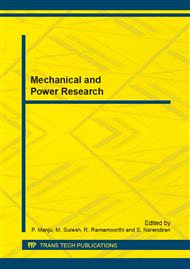p.144
p.157
p.166
p.172
p.178
p.187
p.194
p.204
p.210
Energy Efficient Scheduling Using Simulated Annealing Algorithm for Multi-Core Processors
Abstract:
The role of multi-core processors in recently developed real-time systems is gaining importance because of its energy and thermal conditions. The major development requirements and objectives to be met while designing multi-core processors are: low heat dissipation, low energy consumption and long battery life, which also helps to reduce the system costs. This paper is presented with an aim to achieve a better system performance in a multi-core processor platform by adjusting the trade-off between system performance and power dissipation. Dynamic Power Management (DPM) and Dynamic Voltage Scaling (DVS) are the two run-time techniques used to adjust the trade-off between the system performance and power dissipation. Simulated Annealing (SA) algorithm is implemented in order to find a good approximation to the global optimum. The idea behind Simulated Annealing algorithm is to iteratively improve the solution by investigating the neighbour solutions.
Info:
Periodical:
Pages:
178-186
DOI:
Citation:
Online since:
May 2014
Authors:
Price:
Сopyright:
© 2014 Trans Tech Publications Ltd. All Rights Reserved
Share:
Citation:


